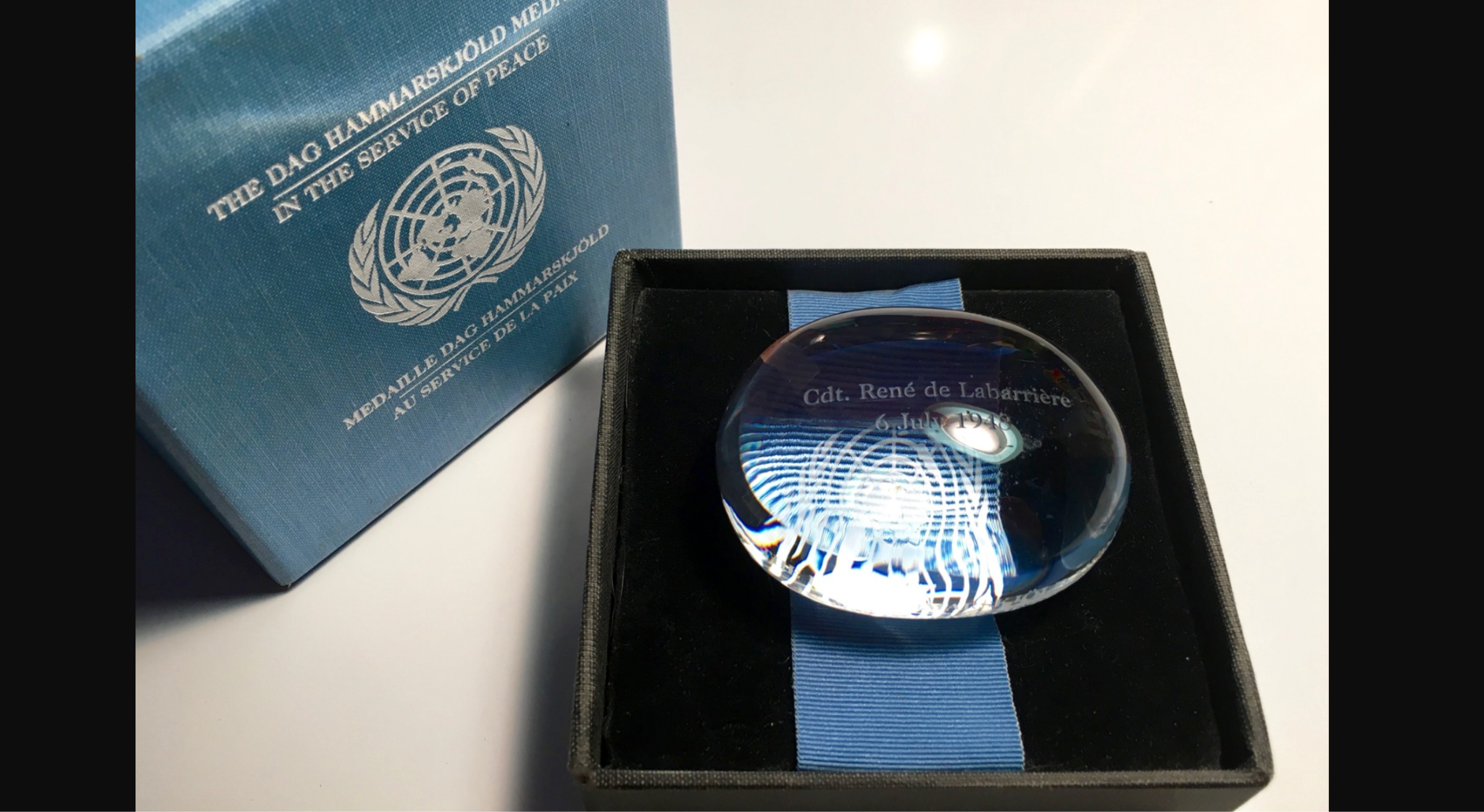Dag Hammarskjold Medal

- 30 May 2024
Why is it in the News?
An Indian peacekeeper who lost his life serving under the UN flag is among over 60 military, police and civilian peacekeepers to be honoured posthumously with a prestigious medal for their service and supreme sacrifice in the line of duty.
What is Dag Hammarskjold Medal?
- The Dag Hammarskjold medal is a prestigious honour commemorating the ultimate sacrifice made by United Nations peacekeepers.
- Established in 1997, it pays tribute to those who have lost their lives while serving in UN peacekeeping missions under the organization's operational control and authority.
- This posthumous award is presented annually on Peacekeeper's Day at a solemn ceremony held at the United Nations headquarters in New York.
- Each member state that has had military or police personnel perish during peacekeeping duties receives the medal in recognition of their fallen compatriots.
- The medal bears the name of Dag Hammarskjold, the second Secretary-General of the United Nations, whose own life was tragically cut short in 1961 while working to resolve the Congo crisis.
- In naming this honour after him, the UN commemorates both his exceptional leadership and the courageous individuals who have followed in his footsteps by making the ultimate sacrifice for the cause of global peace and security.
India’s Role in Peacekeeping:
- India is currently the second largest contributor of uniformed personnel to UN Peacekeeping after Nepal.
- India is followed by Uganda with 5,764 personnel, and Bangladesh with 5,393.
- These personnel are deployed across 12 UN peacekeeping missions across the world.
- Traditionally, India has always been among the biggest contributors of UN peacekeepers.
- Since 1950, approximately 2, 86,000 Indian soldiers have served in the UN across the globe.
- UN peacekeeping missions are mandated under Article 99 by which the Secretary-General is granted the authority to independently address potential global conflicts or threats.
- Also seen as a very robust diplomatic tool, it is also a way in which the Secretary-General flags the issue to the UN Security Council.
- The functions of UN peacekeeping operations range from maintaining peace and security to escorting humanitarian relief, upholding human rights, supporting the fight against gender-based violence to assist in the restoration of the rule of law and facing the complex crises of today from climate change to pandemic.
